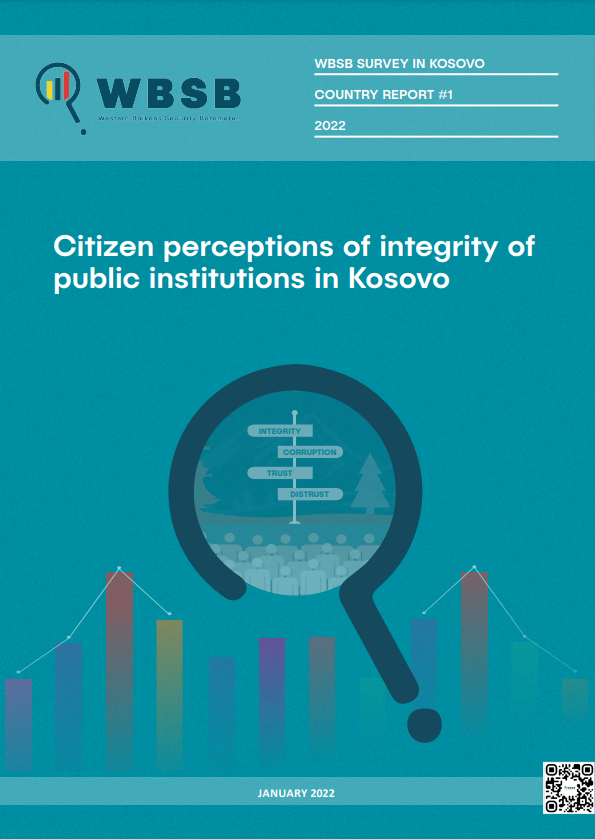1/03/2022

Kosovar Centre for Security Studies (KCSS)
National Endowment for Democracy (NED)
Shpat Balaj
The Kosovo Security Forces, the Kosovo Police, the President of Kosovo and the Municipalities are the most trusted public institutions in Kosovo, with over 50 percent of respondents declaring that they trust or completely trust these institutions. This is followed by the Kosovo Customs and the Kosovo Intelligence Agency with 45 percent of respondents sharing such an opinion. On the other hand, less than 40 percent of the respondents declared that they trust or completely trust Courts, Prosecution, Kosovo Correctional Services, the Government of Kosovo and the Kosovo Assembly. The results of the report show that citizens of Kosovo find the security institutions more reliable with a higher level of trust towards them, compared to other public institutions in Kosovo, such as the justice institutions which citizens perceive less trustworthy and with weak integrity. The citizen confidence in the institutions of the Courts and the Prosecution in Kosovo has been consistently in decline, and this is concerning. Citizens have higher confidence in the public institutions from the central level, especially when compared to the previous year (2020), however, the skepticism towards these institutions generally prevails.
The citizen perception of the presence of corruption in the public institutions follows their perception of trust in the institutions. The lower the trust in an institution, the higher the perception that corruption is present in the respective institution. In line with this, the Security institutions are perceived to be less corrupted when compared to the other institutions. Kosovo Security Forces and Kosovo Police are perceived to be the least corrupted institutions with less than 25 percent of respondents declaring that these two institutions are corrupt or very corrupt, followed by Municipalities with 33 percent of respondents sharing the opinion that they are corrupt. On the other hand, more than 45 percent of the respondents perceive the Government of Kosovo, Courts and Prosecution as corrupt and very corrupt.
Finally, high level of skepticism about the competence of public administration employees is observed among the WBSB respondents. The majority of WBSB respondents believe that only a small group of people are employed in the state administration solely on the basis of merit and qualifications. Although in slightly lower level, similar attitudes are present towards the security institutions as well. More than 50 percent of the respondents hold the opinion that only a fraction of the employees in the security institutions are there on the basis of merits and qualifications.
The data presented in the report derive from the Western Balkans Security Barometer (WBSB) survey. WBSB is a new regional initiative launched by KCSS in 2020, implemented in cooperation with the Belgrade Centre for Security Policy (BCSP) in Serbia and Center for the Study of Democracy and Governance (CSDG) in Albania, supported by the National Endowment for Democracy (NED). WBSB serves as an instrument to measure public perceptions in Albania, Kosovo and Serbia on different security-related issues. The findings demonstrate how citizens percept or are informed about the issues presented in this report. As such, the views presented in this report do not necessarily represent the views of the KCSS, BCSP, CSDG or NED